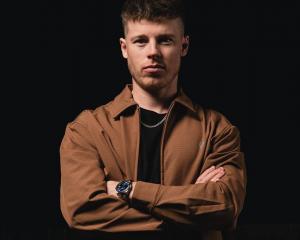That the drugs bust involved a Kazakh rider who was never in contention didn't matter: It once again left a sour aftertaste at cycling's premier event.
Until Sunday's finale, the race had gone 10 days without a doping scandal - three others had already marred the three-week race.
Dmitriy Fofonov tested positive for a "very heavy dose" of heptaminol after Thursday's 18th stage, said Pierre Bordry, the head of France's anti-doping agency. Fofonov was immediately fired by his Credit Agricole team. He was detained by police for questioning, a French police official said.
"These guys are crazy, and the sooner they start learning, the better," International Cycling Union chief Pat McQuaid said by phone. "You can never rule out at the Tour de France - the biggest event of the year - that these guys are going to take risks."
Bordry said Kazakh rider could not provide a medical exemption for heptaminol. The stimulant is used as a vasodilator that helps relieve bronchial spasms.
"Fofonov said he bought the product on the Internet," said Roger Legeay, sporting director of Credit Agricole. "He says that it was for cramps, but that he forgot to tell the team doctor."
Fofonov, known mainly as a strong climber, finished 19th on the Tour, 28 minutes, 31 seconds after Sastre.
Word of Fofonov's failed test came as some teams were still riding farewell laps on the Champs-Elysees. It compounded the damage of positive tests for the banned blood booster EPO - cycling's designer drug - on Italy's Riccardo Ricco and Spaniards Manuel Beltran and Moises Duenas Nevado.
Ricco's Saunier Duval team quit the race and fired him, and the sponsor announced it was ending its relationship with pro cycling. Barloworld, a South African conglomerate behind Duenas Nevado's team, said it would too.
After the positive test on Ricco, who won the sixth and ninth stages, was announced before Stage 12, it looked as though cheats had been chastened - if not deterred.
Tour officials appeared relieved to see riders suffer afterward, as though that was a telltale sign that they hadn't relied on pick-me-ups to get power in the pedal and squelch the pain of the more than 3500km journey.
Christian Prudhomme, the head of the Tour, insisted there were "a lot of good things" this year: "The faces of the riders, burnt out, exhausted, mouths wide open at the end ... The fight against doping has made enormous progress.
"The difference between those who cheat and those who chase after them has considerably narrowed."
Bordry pointed to laboratory proof. From the July 5 start in Brest until the first rest day in Pau 10 days later, blood parameters culled from dozens of anti-doping tests showed fewer anomalies - on average, he said.
"That means that either the riders were in better health, or that it's proof they're not taking as many substances," he said.
Better yet, the race improved as a spectacle after the Ricco bust. As racers began three treks through the Alps by riding into Italy in the 15th stage, five riders were within 49 seconds of then-leader Frank Schleck of Luxembourg - the last of them Sastre.
That was when the 33-year-old Spaniard, who has six top-10 Tour finishes, took over. The dramatic climax for him came in the last and most punishing day in the Alps in Stage 17, which he won, and took the prized yellow jersey off Schleck - his CSC teammate.
Sastre had one final big hurdle: Saturday's time trial. Australia's Cadel Evans, known as an ace in the discipline, was regarded as a favorite to recover the yellow jersey that he seized in the Pyrenees - but had lost to Schleck.
Sastre knew he needed the time trial of his life to hold a 1:34 lead against the Australian, and he got it. Evans made up only 29 seconds against the Spaniard, paving the way for his victory cruise - champagne in hand - into Paris.
By the finish on the Champs-Elysees, Sastre won by 58 seconds from Evans, runner-up for the second straight year. Bernhard Kohl of Austria was 1:13 back in third, the second-tightest podium finish in the 105-year-old race.
Sastre crossed arms and butted helmets affectionately with CSC teammate Stuart O'Grady as they crossed the line behind Gert Steegmans of Belgium, who won the 21st and final stage in a sprint.
Sastre was then surrounded by his family after getting off his bike.
"It's very moving," Sastre said, hugging his two children.
This is the third straight year a Spaniard captured the Tour. Alberto Contador won last year and wasn't allowed to defend his title, and Oscar Pereiro inherited the 2006 title lost by American Floyd Landis in a doping scandal.
Sastre, who grew up in the Spanish town of Leganes south of Madrid, became interested in racing at age eight, when his father, Victor, opened a cycling school.
"When he was young, we thought that one day he could attempt the Tour de France," Sastre's mother Teresa told Eurosport television from Spain. She said her son had "sacrificed" for this moment.
Television images showed hundreds of cheering fans pouring into the streets on Sunday in the mountain village of El Barraco, where Sastre has a home, to celebrate his victory.
Sastre began racing in 1997 and in 2000 made his professional debut with the Once team, managed by Manolo Saiz. Saiz was one of five people arrested in May 2006 as part of the Operation Puerto doping scandal in Spain, and is no longer involved in the sport.
Aware of the doping cloud over cycling, Sastre put it bluntly after his victory appeared certain on Saturday: "I'm clean."












